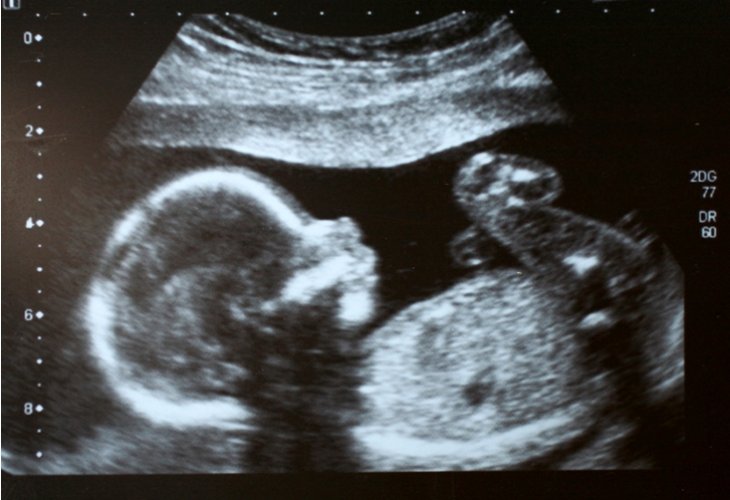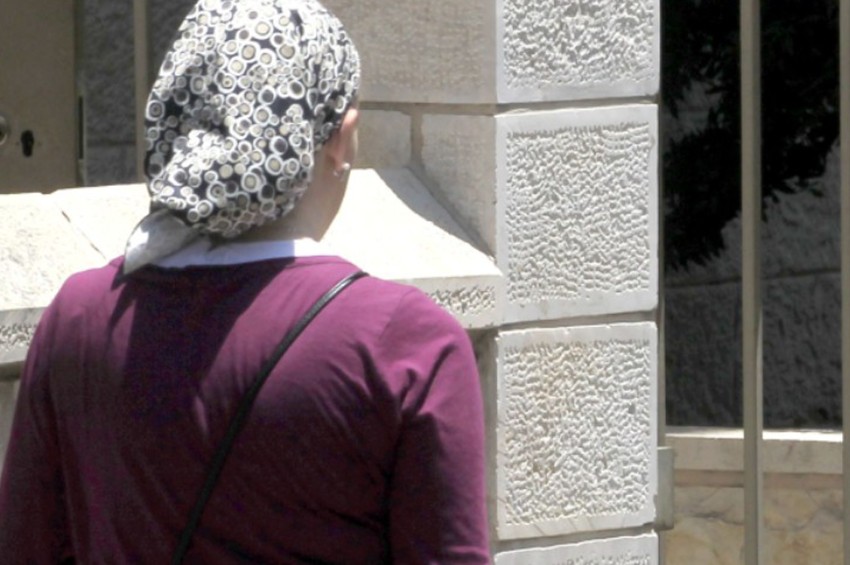"I Met Girls Living Lives of Slavery": The Woman Who 'Gathered' Girls from the Streets of Tel Aviv Tells Her Story
A few years ago, Y., a Torah-observant Jewish woman, took to the streets of Tel Aviv to bring young women of the big city back home. Today, she shares the pain she encountered, the hearts she touched, and the redemption that is near. "I met girls living in slavery, feeling betrayed. I tried to tell them they don't have to stay there forever." Third story in the "Street People" series.

After decades of working with young girls and women, trying to reconnect them even slightly to their Jewish roots, one might ask Y. what she sees when looking into these girls' eyes. "I see many things," she says. "It depends on what they're going through. Sometimes you see sadness, or disappointment, or happiness. Over the years, I learned the uniqueness of Jewish eyes, there's something completely different in them. There's always the life, the deep emotion. Sometimes you see the good will. There's something in the eyes that shows something else. And that is the soul."
Y. was born abroad, coming into the path of religious observance about 25 years ago. Since making aliyah, she has aimed to draw the daughters of Israel closer to their roots, performing this through various places and means. After years of volunteering and bringing people closer, Y. felt she wanted to go to the streets and gather the girls from there, attempting to bring them back. In collaboration with "Lev L'Achim," she embarked on several years of activity in the streets of Tel Aviv, trying to speak to their hearts.
"I met girls who externally seemed very tough," she recalls. "Very influenced by media and films, by the message of advancing, succeeding, making money. I would meet girls just arriving in Tel Aviv, from the north or south, and they'd have this excitement. The feeling that they've arrived in the big city with endless possibilities: venues, the chance for relationships, for self-realization."

"But after a few years, you see the real faces: the endless work hours, relationships that don't culminate in marriage. Often, girls would break, telling me about major disappointments, long-term relationships that ended in nothingness, feelings of betrayal. They're still Jewish, with pain inside, a desire for a true home. But they don't realize they harbor this pain. The pain isn't awake."
Do these thoughts not arise for them daily?
"They're very much in the now of doing. A girl studies, works hard, and doesn't really feel like she's in some kind of slavery. They take it for granted, that one must work from morning till night. And they don't notice time passing. Because all the time they're told they're young. But they don't understand it's not quite so, life does pass by."
Y. simply states: "These are lives being lost. In this world, they're getting used to a certain distortion—of their femininity, of the Jew within them. And I try to tell them they don't have to remain in this kind of life forever. I try to tell them what's happening in another part of Am Yisrael. But of course, it needs to be done gently. I can't shatter a person's life completely. So I talk mainly about two important areas that are being overlooked: parenthood and relationships. Because reality in these areas isn't great. And they say it themselves. They see it."
When asked what keeps young Tel Avivians in these not-so-simple lives, Y. responds: "First and foremost, unfortunately, there's a certain uncleanliness people become accustomed to. And there are momentary pleasures. In this world, every step is filled with temptation. The media and their surrounding environment wash their brains, making them think these are the real lives."
"Girls come to the city, find no work, want to study, what should they do? The easy money is being a waitress. They know and feel the issues in such work, with needing to be pleasing to every client. But they need the money, and it's easy money."
How did you try to speak to their hearts?
"I always try to take them back to the root, to memories. Many young women I've met come from broken homes, but perhaps they remember a grandfather or grandmother, they know the concept of family exists. Mainly, I try to speak to the soul. Because Hashem planted the right desires in the soul."
"But the soul doesn't get tainted"
For Y., with a background in mental therapy, the urge to hit the streets came from one deep understanding: "When a person in distress comes to ask for help, it's already a sign their distress is somewhat alleviated. Those most in need, the ones needing help the most—are people who never come to ask for help. It's almost a rule, in any type of distress."
Y. realized that those most thirsty for some help, some light—don't necessarily have the strength to come and ask. "True, nowadays there are many returning to their faith, thank God, and there are many avenues for a person to find strength. But those in the deepest distress don't reach these places, and these places don't reach them. They are the last."
"So initially, I thought, maybe I won't achieve great success. Because here, we need to reach Hashem's children who are rolling in the mud, spiritually or even physically, and don't know how to extract themselves and get to the source of repentance. So it's tough work, not yielding immediate fruits. But I thought maybe it would bring satisfaction to Hashem."
 (צילום אילוסטרציה: פלאש 90)
(צילום אילוסטרציה: פלאש 90)Nonetheless, Y. sees the faith that still moves deep within the girls she speaks to. "Compared to the girls I met abroad, I see that girls in Israel have a lot of faith. Usually, it's not implemented, it doesn't manifest, but it's there. And sometimes it does manifest, sometimes there's prayer, communication with Hashem—but it's as if there's a split. It's as if a girl has two lives, a life of faith and 'regular life.' And she doesn't connect them together. And maybe she doesn't see a conflict between them."
How do you see Tel Aviv after these years?
"Tel Aviv is completely different from what people think. If we suffer from a disease, then Tel Aviv is the wound, the place where everything comes out. When I stood on Bugrashov, there was a garden for children. One day, it was turned into a park for dogs and their owners. And the dogs climbed on equipment that was once for the kids, and I saw the owners sitting and watching them calmly and with affection. It symbolized everything for me."
Where did you find the strength to repeatedly leave home for the streets, for such a challenging task?
"After all the rejections and failures...what kept me going? I love the daughters of Israel. And I saw in their eyes precious souls that emerged from impurity and established a holy family. And even those who came closer, but still didn't marry—they have new lives. They're pure, clean, doing the work of Hashem. They experience community, faith, mitzvot, happiness with friends and on Shabbat. Everything gains significance. These are completely different lives.
"I got a lot of strength from the closeness and encouragement of the late Rabbanit Kanievsky and Rabbanit Edelstein. They greatly strengthened me in the love of Israel. The knowledge that every Jew has an eternal soul rooted in higher worlds. It's pure, it's clear, it doesn't get dirty, it doesn't spoil. Over the years, I started communicating with that soul. Sometimes I said something the person didn't understand, but I saw the soul comprehended it. It touched a point."
"I went to the sea, and felt there's someone responsible here"
Y. also speaks of young people from abroad, Jews and non-Jews, who are increasingly drawn to Israel in recent times, searching for their soul's source. "I now see many souls attracted to Israel, precisely at this time. Individuals from all over the world, from remote places. But when they arrive, there's not always someone to meet them, to interpret their yearning. There aren't enough resources for these young loners who come from abroad to seek their soul."
"They come from America or Europe, sit in hostels, go out in Tel Aviv, and see what they saw in any big city. They could have stayed in New York to see hedonism. They aren't brought to explore the spiritual side, the awakening of repentance and holiness in Israel. Nobody explains why this is the Holy Land. Nobody tells them why they're in Israel and not elsewhere."
"I met a girl from Brazil who told me, I came here and I feel divinity. I would go to the sea and feel there's someone in charge. I feel the emotions here differently. She kept saying, it's truly the end of days. In exile, we were scattered among the nations to return all the sparks here. And now they're returning."

Y. grew up abroad, in an area where today, she says, 80 or 90 percent of its Jewish residents are assimilated. She studied at university and felt out of place. She started feeling a yearning for the Land of Israel. "What hurts me most today is knowing that all my family and acquaintances, good people who stayed there, have almost completely assimilated. If I had stayed, it would have happened to me too."
It seems that one of the most painful topics for her, after many years of work, is the issue of relationships and family, and the longing for holiness and modesty. "Each of these girls feels like they've gotten a bit tainted living in this world," she says. "And each one knows that many of the men she met never connected to her soul, her needs. They want someone to see them, to truly see their soul, to be a support for them. But they know that in the world they live in, the matter of loyalty and commitment is weak. I try to reach this yearning and tell them that what they're looking for, they will find in someone close to the Torah, who understands what a home is, a wife, loyalty, guarding one's eyes, holiness."
Y. recounts, often during her acquaintance with the girls, they managed together to trace their illustrious roots. "I met girls descended from great individuals, and they didn't even know. I tried to explain the importance of this, to show them they certainly too can purify themselves from the root. Then, sometimes I saw how a sense of new self-worth was born in them, a connection to their identity, a link to the chain of generations."
Do you feel a wave of return to faith among the girls in the city and in general?
"What is there to say? Without a doubt. And it's growing. Twenty years ago, there was much more resistance. Besides that, today we also see, that by nature, the Jewish people have no survival. It's someone else holding us. And we increasingly feel that every Jew determines the fate of the entire Jewish people. Our actions have an impact."
Y. worked in identifying girls on the street for several years until she felt she couldn't go on. Today, she continues her mission of bringing people closer, maintaining contact with the girls via phone. "I don't know how much I helped. I cast my bread upon the waters. There are hundreds and thousands I never saw again, and I don't know what happened. But sometimes there are surprises. There was one girl I hadn't seen for many years, and suddenly I saw her at Rabbi Zilberstein shlita, she came to get a blessing with her fiancé. And she approached and asked me, don't you recognize me?"

